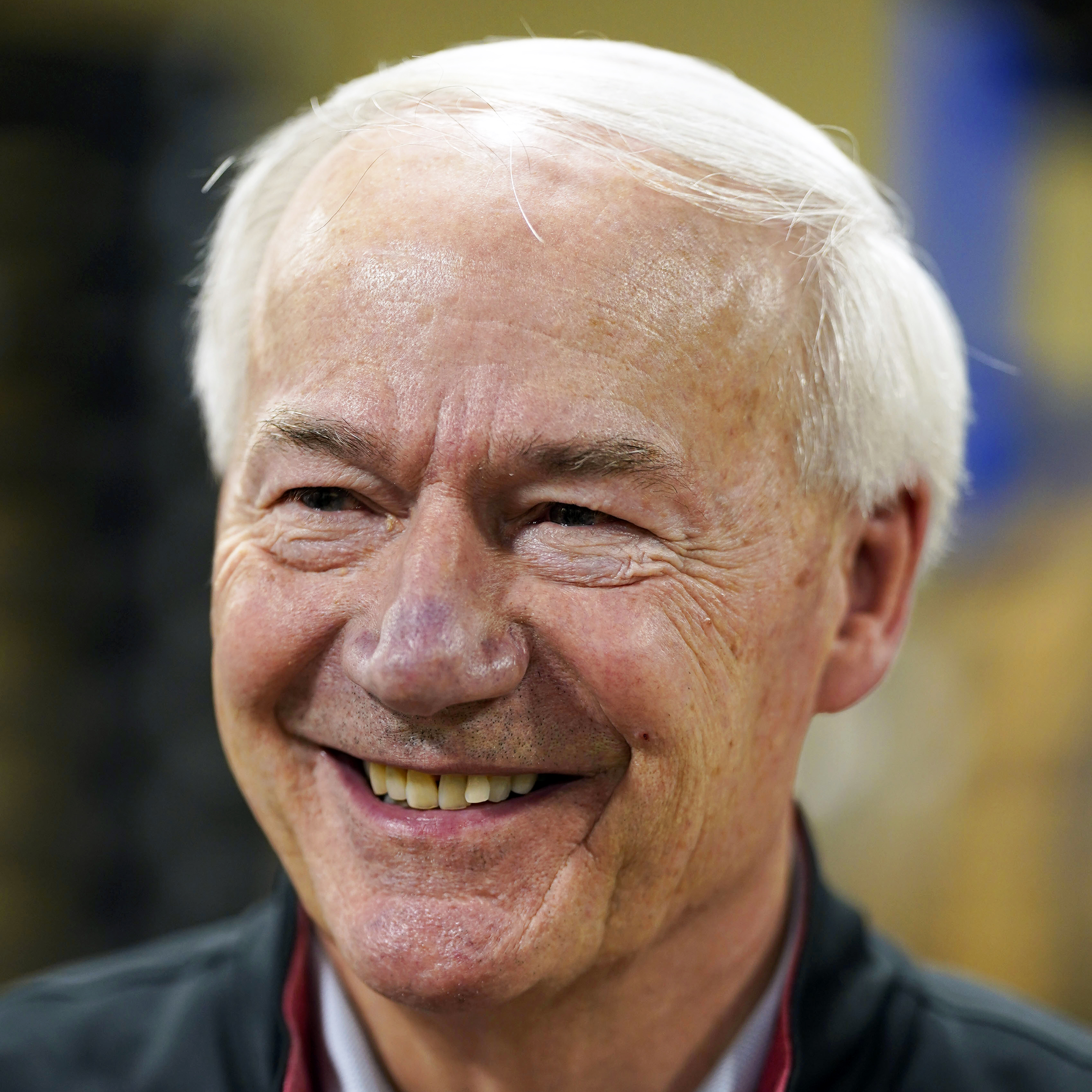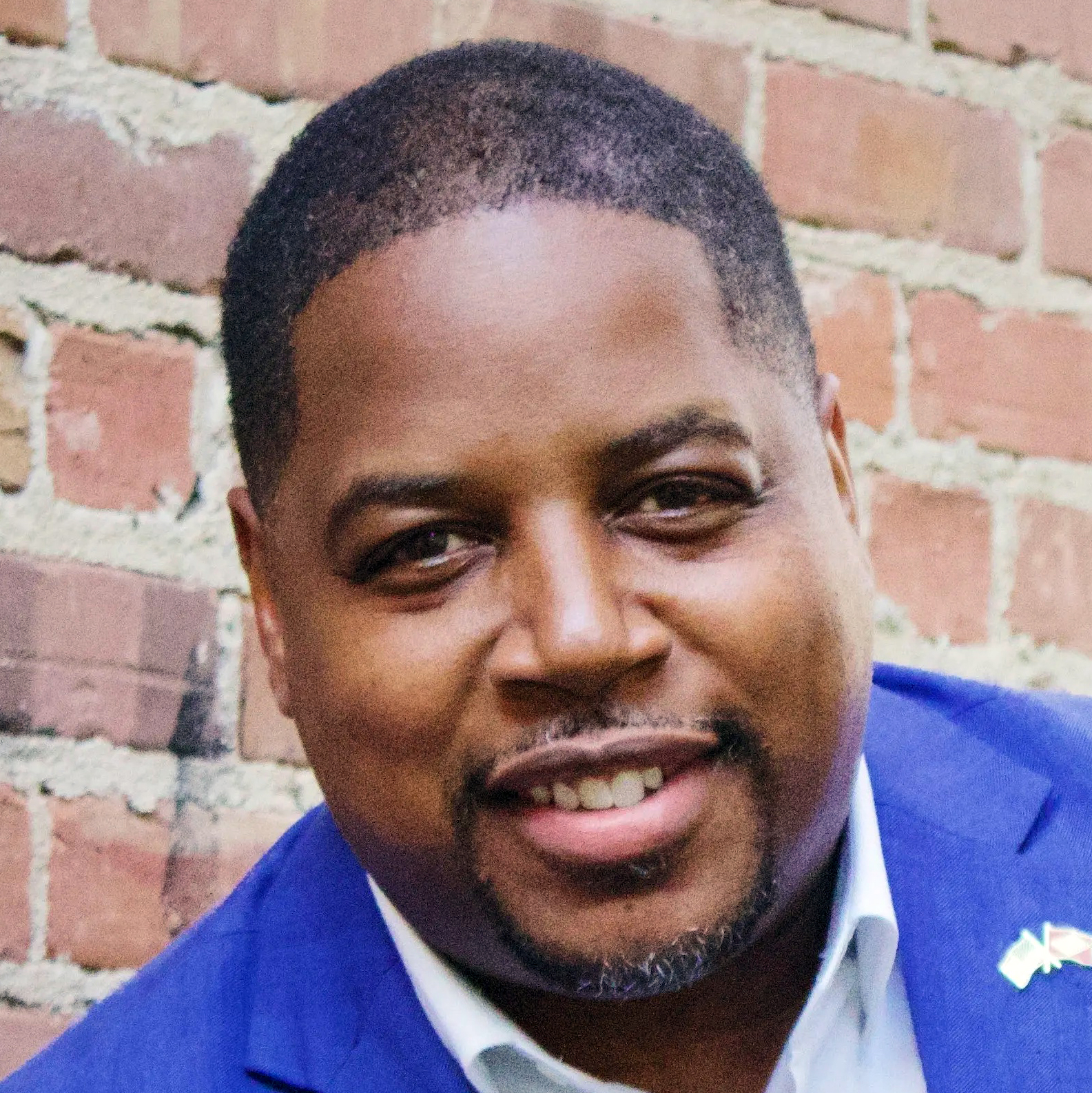Episode Transcript
Karl Richter
Joining me on the phone from Rogers, Arkansas, it's former Arkansas governor and presidential candidate ASA Hutchinson. Hello, how are you?
Asa Hutchinson
Well, I'm doing terrific today, Karl, great to be with you.
Karl Richter
What are you doing these days? What are you — how are you spending your time since you've been off the campaign trail?
Asa Hutchinson
Well, you think about it, I had eight years as governor. And then one year of campaigning for president. So a break was in order. And so we're doing a lot of catching up. First of all, last weekend, I was watching my grandson play college basketball up in South Dakota. And so that was a good family time. And but I've got a consulting practice that I pick up on that focuses on homeland security issues. And so doing some private sector stuff, but also very engaged in the presidential campaign, as an observer and supporter of Nikki Haley, and concerned about the direction of the Republican Party right now.
Karl Richter
Well, that's what I wanted to ask about next. You've had some time to reflect on the campaign since you dropped out. What do you see there? And tell me why you have chosen to endorse Nikki Haley.
Asa Hutchinson
Well, Nikki Haley beat me and beat just about everybody else, in fact, except for Donald Trump, so she, you know, when you look at Iowa, my votes went down, because they shifted toward Nikki Haley. And I disagree with her on some things. I raised those issues during the campaign. But she is a refreshing alternative to the chaos of Donald Trump. And so I, she's the the alternative that's out there, that's still fighting. And so that was a fairly easy decision to endorse her. And she's fighting hard. I'm very proud of her that she has a lot of pressure on her. And the and it's tough in South Carolina, her home state, but she's hanging in there. And she's going to continue.
Karl Richter
Yeah, just today, she announced that she's going to stick with it, at least through Super Tuesday. What went into your decision? I mean, you mentioned that, of course that you got beat. But can you speak generally about what goes into the decision whether to keep going or drop out? What would you advise her in that regard?
Asa Hutchinson
Well, it's all about your ability to fund a campaign. For us, we had to do well in Iowa in order to sustain the campaign to be able to continue to raise money. And when that dries up, and you can't get on the ballot, it takes money for your organization. And so you're really up against the wall, and I didn't want to have to withdraw because I saw this, just as Nikki sees it now, as a long term fight. I think it could go to the convention. And, and it very well could be that they'll be looking for alternatives close to the convention date. So but it was my decision to drop out because there's really no alternative at that point, whenever your donor base dries up, and you can't continue into the other states. And that's the test for Nikki Haley right now. She's got to do well enough in South Carolina, so that her donors that helped fund the campaign say she's got a chance. Let's give her more time. Hopefully, she'll be able to break through. So you know, it's, it's the votes. It's the polls, but it's also your ability to raise money.
Karl Richter
You have said that you would not vote for former President Trump, if he had been convicted of felony by election day. Would you vote for him under any circumstances? Would you vote for him as the nominee, if that does not come true?
Asa Hutchinson
And what I've said is that I will not support somebody who's a convicted felon. And, and we're gonna wait and see who comes out of the convention. I'm hopeful that someone other than Donald Trump will come out of the convention. So that remains to be seen. But I've always supported the nominee. I hope to this year, but I'm very worried when Donald Trump, not just on his court cases, but the fact that he's aligned himself with Vladimir Putin, a dictator in Russia, and will not take a stand against an enemy of democracy and freedom. This troubles me that he's fighting to lead the party, and so I've never been in this situation before. Let's wait and see who comes out of the convention.
Karl Richter
Do you think there's anything that could persuade those people who are determined to vote for Trump no matter what? Do you think there are people who are devoted to him now whose minds could be changed?
Asa Hutchinson
There's a certain percent probably, you know, at least a third of his supporters that are locked solid under any circumstance. As one of his supporters said, I'll be voting for him, even if he's in Alcatraz. That's exactly how he expressed it to me. But then you have another two thirds of the base or his supporters that waver and say, Well, if he is actually convicted, then he loses a significant amount of support. And so yes, I think as the closer you get to the convention, the more people will be thinking about, is he prepared? Can he be president again? And secondly, can he beat Joe Biden. And as you get closer to the convention, those questions are going to circulate more. That's why he's working so hard to wrap this up early, intimidation, trying to get it wrapped up, force people out, because the longer this stays in play, the more at risk he is.
Karl Richter
I've heard reports of people in Congress, for example, saying they fear for their own personal safety and for that of their families, if they speak out against Trump. Has that been your experience? Do you have that concern?
Asa Hutchinson
I know that it's real, and that there is an element that is so extreme that, you know, if you say anything negative about Trump, all of a sudden you're persona non grata. And that, you know, anything is justified. I haven't had that personal, limited personal experience in that arena. But I have felt the angst. I've felt, you know, that they don't want anyone to cross Donald Trump and his message. So yeah, it's severe. But we got to have courage. I didn't back down. And, and the members of Congress need to show courage. They shouldn't, should not be intimidated from someone just because they want to create chaos, rather than get something done.
Karl Richter
I feel sort of obliged to have had to ask you about him. What would you rather talk about? What is it that we're not talking about because of him, as they say, sucking all the oxygen out of the room?
Asa Hutchinson
Well now, that's a good question. And I tried to present a campaign that were full of ideas. And we've got to address the deficit that we have in the country, we've, our excessive federal spending. We've got to make sure that we can grow our economy, get a better handle on the the distrust of the economy, the lack of confidence in our economy. And we, and of course, the border is something that has to be talked about. But you know, whenever people are working for solutions, and they're derailed by Donald Trump, his name does come into play. And so he forces himself in the debate with some really bad ideas. But there's a lot of good ideas out there. What I focused on was a very precise reform of federal law enforcement, making sure that we have a commission for the future of Social Security and Medicare, to make sure they're solid for the future. But we have to have a bipartisan approach to that. We want to talk about controlling our deficit. And the last time we balanced the budget in this country was when I was the United States Congress. You know, the issues that we need to be talking about are our housing shortage in America. We need to be talking about the kitchen table issues that concern families, and certainly security, with the crime that's in the street. And that's why I was a rule of law candidate. So those are the issues that we need to focus on. And, obviously, the national security issues are predominant today, with the risks that we see abroad. And, you know, we need to be looking at this with clear eyes. And, and I think this administration is doing well by trying to avoid a regional conflict in the Middle East. But Iran is to the point that you cannot let them have surrogate terrorists out there that are killing Americans wWithout a direct response. And so this is the debate that we should be having, with clear ideas based upon principle and America's interest, and not distracted from that.
Karl Richter
Regarding the border, you've served both in federal and, obviously, state government. What's your take on the conflict between the two that's happening on the Texas border right now?
Asa Hutchinson
Well, first of all, it's a conflict that should be avoided. We've always worked in partnership between the federal government and state government, in securing our border when I was in charge of border security during the Bush administration, I worked closely with the governors and with local law enforcement, and to see this conflict is detrimental to what we're trying to accomplish. What the president should do, is to call in the governors and say, let's work together. And whenever it comes to the water barriers that were placed and put into action by Governor Abbott, President Biden should have looked at that and said, Why didn't we do that sooner? You know, we're trying to build infrastructure. And instead, President Biden sues Governor Abbott. That's the kind of conflict that should be avoided. We can work together for this. And, you know, it all lies at President Biden's feet, because from day one in his administration, he had a soft approach to the border. And he's tried to tighten it up. But the message was sent across the world that our border was open, and his administration is going to take a change of personnel. It's going to take the resources reforming our asylum law, many of the things that were in the border security bill that Donald Trump sent the message out that he'd rather have it as an issue rather than to get it fixed now.
Karl Richter
Would you have voted to impeach Secretary Mayorkas?
Asa Hutchinson
I would not have. And I mean, I think this administration is fully responsible for the disaster at the border. But Mayorcas is carrying out the policy of the Biden administration. And, you know, high crimes and misdemeanors are not defined as disagreements in policy. And I was there for the impeachment trial. I was a manager in the impeachment trial of a president from our home state. And so I understand impeachment and obstruction of justice and perjury and high crimes. And policy disagreements do not fit into that. So I don't think that impeachment is going to go anywhere. It's going to sit there in the Senate will not get a trial. But certainly, they're accountable for it, but they're accountable for disastrous border policy in the upcoming election.
Karl Richter
Let's get a little bit more local now. The LEARNS Act, the education reform bill passed last year in Arkansas. I want to get your take on how much in agreement are you with the LEARNS Act? It's become a campaign issue here in Texas to adopt a sort of similar system of vouchers. So what do you think about that?
Asa Hutchinson
I've been supportive of it. I haven't got into the weeds on the LEARNS Act. But in principle, choice in education is important. And that competition is important. I believe it builds a better school system, both public and private. And so I'm supportive of that. You know, someone commented that, whenever you look at those that criticize school choice, they're probably overstating the harm that will come from it. And those that support school choice probably overstate the benefits from it. And so we've got to balance it out. And whenever you're in a rural state, I recognize that choice doesn't mean that much in some of our rural communities. But it certainly does in our urban areas. And that's where our kids are suffering. So I'm supportive of that concept of school choice, so that our young people will not be stuck in a failing school and they will have options for it. We'll have to tweak it as it goes, goes into the future. We will learn from each error and step, but the concept I think is important for education for what we're doing right now. It's not working that well.
Karl Richter
I've been really good interested in following the story lately about lithium mining, or drilling, here in south and southwest Arkansas. It seems to promise a real economic boom for the state. Was that something that was on your radar screen when you were governor? Was, were you looking ahead to that back then?
Asa Hutchinson
Oh, absolutely. Not just looking ahead to it. But we were very supportive of the pilot project that Standard Lithium was conducting. And we were very supportive of that. And of course, the big change happened whenever Exxon came in and said they wanted to be involved in lithium production. And all of a sudden, you've got a pilot project, you got a very big player there, and it changed the dynamics dramatically. And, one, it's where you've got a great demand, obviously, with the need for lithium in our batteries. You got a great demand. And then secondly, the technology seems to be working for production of lithium. And so it's incredible opportunity for south Arkansas. And we will be a new standard of lithium production and regulation and, and rules as we establish that here in this state. So it's a great, great opportunity, very excited for those that have invested in it and believe in it in south Arkansas.
Karl Richter
Okay, last question. What in general do you see for the future in Arkansas, say over the next 10, 20 years? What what do you think is going to — what do you think the state's going to look like in the next generation?
Asa Hutchinson
Oh, I think there's no limit for the success of Arkansas in the future. When you look at people moving here, we crossed 3 million in population. We're a growing state. And in every part of the state, you can see a success story, from lithium production in south Arkansas, and the success of the timber industry, to the steel industry in the eastern part of the state, northwest Arkansas has all kinds of growth here. And then whenever you look at the firearm production, the industry that I brought in as governor from Sig Sauer there in Little Rock that benefits the entire state with its production and with the supply chain that's required for a major industry like that. So I think it is bright, we just, the key is that we get we continue to invest in education. We continue to emphasize our computer science education. We can't back off from the success that we enjoyed there, where we went from 1,600 Students taking computer science to over 23,000. That's while I was governor. And of course we've got to continue that path because that's the foundation for growth in every part of the state and giving our young people the opportunities that they need.
Karl Richter
Great. Thanks again for taking some time to talk with me today. We will look forward to seeing you next time you're in Texarkana.
Asa Hutchinson
Well, I appreciate it. Again, thanks for the opportunity to be with you today.
Karl Richter
All right, thanks so much.
Asa Hutchinson
Okay, you take care.
Transcribed by https://otter.ai



